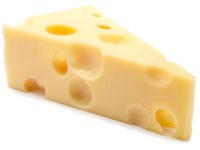Advertisement
Grab your lab coat. Let's get started
Welcome!
Welcome!
Create an account below to get 6 C&EN articles per month, receive newsletters and more - all free.
It seems this is your first time logging in online. Please enter the following information to continue.
As an ACS member you automatically get access to this site. All we need is few more details to create your reading experience.
Not you? Sign in with a different account.
Not you? Sign in with a different account.
ERROR 1
ERROR 1
ERROR 2
ERROR 2
ERROR 2
ERROR 2
ERROR 2
Password and Confirm password must match.
If you have an ACS member number, please enter it here so we can link this account to your membership. (optional)
ERROR 2
ACS values your privacy. By submitting your information, you are gaining access to C&EN and subscribing to our weekly newsletter. We use the information you provide to make your reading experience better, and we will never sell your data to third party members.
Environment
Gouda Cheese Surrenders Its Secrets
A taste panel and analytical techniques reveal the source of Gouda flavor characteristics
by Sophie L. Rovner
March 11, 2009

Scientists in Germany have identified key compounds that contribute to the complex flavor and texture of aged Gouda, a mild cheese of Dutch origin. Food chemist Thomas Hofmann of the Technical University of Munich, Weihenstephan, and colleagues made their discovery with the assistance of a group of committed taste panelists, who underwent weekly training sessions for at least two years in order to help with the research. Hofmann???s team also wielded gel permeation chromatography, high-performance liquid chromatography, and mass spectrometry in their quest to isolate and identify the compounds that enhance Gouda???s character.
The researchers compared the composition of a "young" Gouda cheese that had ripened for only four weeks with that of a "mature" Gouda that had ripened for 44 weeks. The aged cheese has a fuller, more complex, and long-lasting taste that is known as the "kokumi sensation," a term used by Japanese researchers to describe a rich, thick taste. Hofmann???s team determined that the kokumi sensation can be traced to six  -L-glutamyl peptides?? (J. Agric. Food Chem. 2009, 57, 1440). Their findings could be used to enhance the flavor of other dairy products.
-L-glutamyl peptides?? (J. Agric. Food Chem. 2009, 57, 1440). Their findings could be used to enhance the flavor of other dairy products.





Join the conversation
Contact the reporter
Submit a Letter to the Editor for publication
Engage with us on Twitter